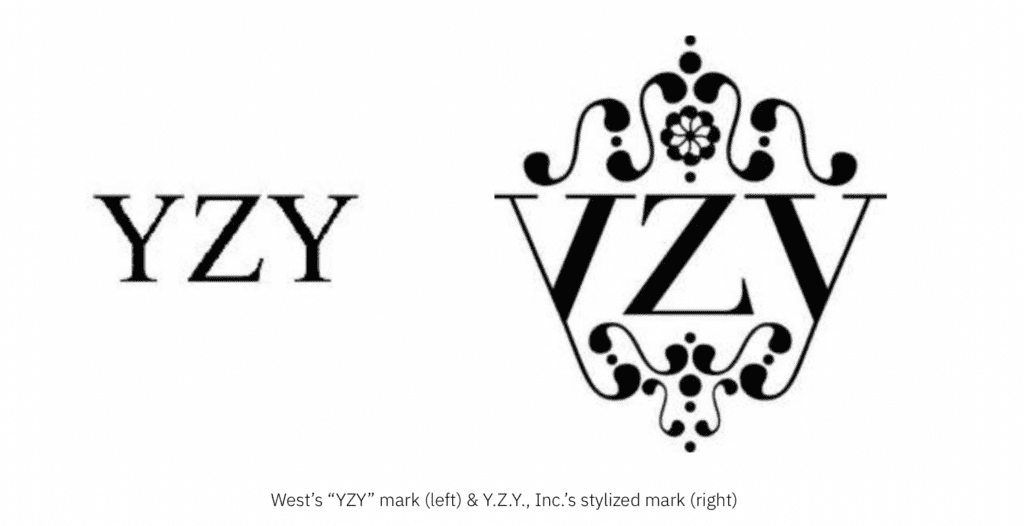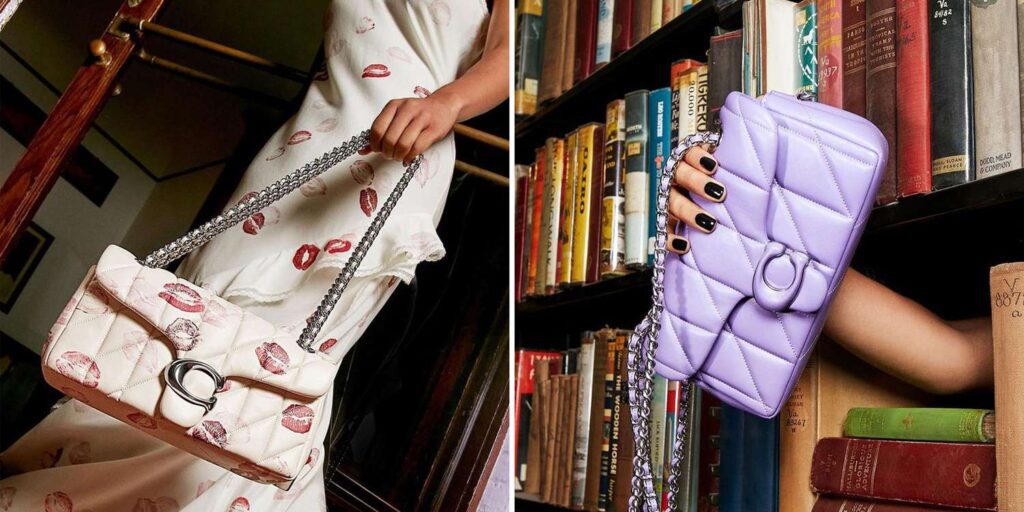Ye (formerly Kanye West) appears to have prevailed in a fight to keep one of the trademark registrations tied to his Yeezy apparel and footwear brand intact. In a filing with the U.S. Patent and Trademark Office’s Trademark Trial and Appeal Board (“TTAB”) on April 3, as first reported by TFL, counsel for fragrance and cosmetics wholesale Y.Z.Y., Inc. alerted the trademark body that it is looking to withdraw its bid to cancel the registration issued to Ye’s Mascotte Holdings for the YZY word mark for use on footwear with prejudice and thereby, bring an end to the parties’ almost 5-year-long trademark clash.
Some Background: Miami-based Y.Z.Y., Inc. first sought to have the TTAB cancel Ye’s registration back in 2019, arguing that it began using the YZY name before West. After receiving a string of Office actions from the U.S. Patent and Trademark Office (“USPTO”), which refused to register its own stylized YZY trademark for use on fragrances hair care preparations on the basis that it is confusingly similar to Ye’s already-registered YZY mark, Y.Z.Y., Inc. lodged a cancellation petition with the TTAB. The company argued, among other things, that it “is and will continue to be damaged by the registration of the ‘YZY’ mark,” which West first began using on footwear on February 14, 2015, the day that his Yeezy 750 Boost adidas sneaker was first made available to the public.

The problem with that, according to Y.Z.Y., Inc., is that West first used the “YZY” name on sneakers years after it had adopted the YZY name. Specifically, Y.Z.Y., Inc. argued that it started using – and thus, started amassing trademark rights in – a stylized “YZY” mark in connection with its “business of manufacturing, promoting, advertising, distributing, and selling high quality hair care, skin care and fragrance goods … throughout the U.S.” since “at least as early as August 2011,” and has consistently used the mark since then.
A Co-Existence Agreement?
Now, following lengthy suspensions of the cancellation proceedings as the parties “actively engaged in negotiations for the settlement of this matter,” Y.Z.Y., Inc.’s withdrawal of its petition suggests that the parties have successfully resolved their differences. As for what such a potential settlement may consist of, a bit of a deeper dive into the parties’ clash reveals that they may have entered into a co-existence agreement to enable them to both operate in the market using their respective YZY marks. As it turns out, on the heels of the USPTO issuing a final refusal to register Y.Z.Y., Inc.’s mark, the company submitted an unsigned (and confidential) draft of a co-existence agreement between it and Mascotte Holdings in connection with its bid for a reconsideration of its application for registration.
Given that Ye’s YZY registration – which was standing in the way of a registration for Y.Z.Y., Inc.’s mark – is still in force and that the mark at the heart of Y.Z.Y., Inc.’s application for registration was published for opposition earlier this year, it seems that a consummation of that proposed co-existence agreement may have come to be.
Similarity of the Goods
The matter – although largely uneventful in terms of developments following the initial cancellation petition – is interesting in that it sheds light on how USPTO examiners view the relatedness of goods like footwear and fragrances. As indicated by the Office actions that it received in response to its application to register its stylized YZY mark, the USPTO examiner took the position that Y.Z.Y., Inc. and Ye’s goods are related, stating that based on case law and TTAB precedent, “compared goods and/or services need not be identical or even competitive to find a likelihood of confusion.” Instead, they only need to be “related in some manner and/or if the circumstances surrounding their marketing are such that they could give rise to the mistaken belief that [the goods] emanate from the same source.”
In furtherance of its determination that fragrances and footwear are “of a type commonly provided by a single entity under the same mark” and thus, related, the USPTO examiner pointed to internet evidence from “numerous retail establishments” establishing that “fragrances, hair care preparations, and footwear are commonly provided under a single mark, and that the goods are sold or provided through the same trade channels and used by the same classes of consumers in the same fields of use.”
At the same time, the examiner asserted that a representative sample of third-party marks registered by the USPTO shows that “footwear and hair care preparations and/or fragrances, are of a kind that may emanate from a single source under a single mark. As such, Y.Z.Y., Inc. and Ye’s goods are related for likelihood of confusion purposes.
THE BIGGER PICTURE: This is noteworthy in light of the ever-growing zone of expansion for consumers goods brands. Luxury fashion brands are no longer limited to offering up apparel and leather goods and have expanded to cosmetics, homewares, petwares, etc. and even beyond that in some cases, to hospitality services (like hotels and restaurants) and endeavors in the arts/entertainment arena. At the same time, as we previously outlined here, mass-market companies of all kinds are readily blurring the lines between their staple goods/services offerings and those that can be expected from modern companies that are looking to cater to brand-happy, community-craving consumers via all types of branded merchandise and experiences.
Such enduring expansion endeavors are not only significant for brands from a revenue standpoint but they can also bring about trademark considers and clashes for companies, as well.











